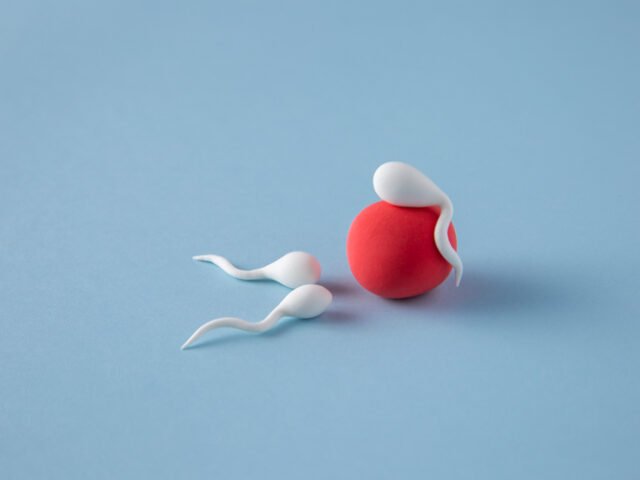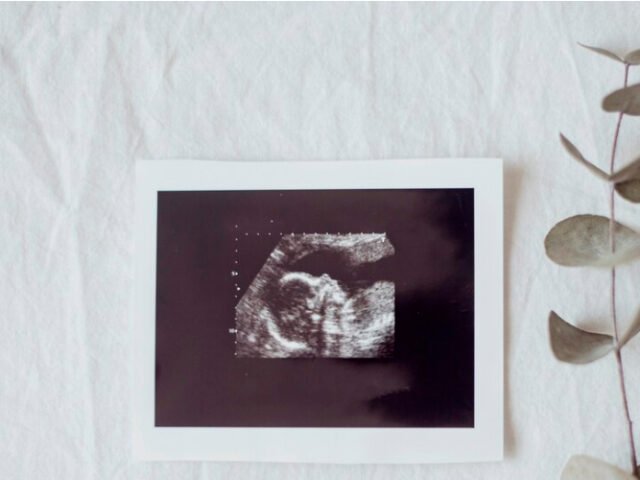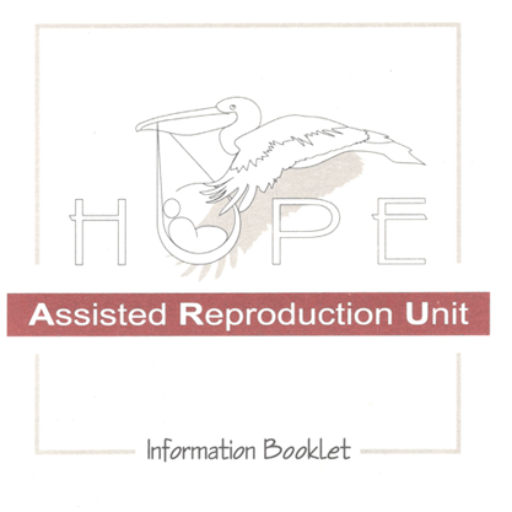Female Fertility Preservation and Egg Freezing
Fertility preservation is the practice of proactively helping woman to preserve their eggs (oocytes) thus increasing their chances for future reproduction. Oocytes are frozen using verification, an ultra-rapid freezing method, and stored in liquid nitrogen at -196 ͦC.

What are the main reasons to opt for oocyte cryopreservation?
- For female patients whose fertility may become compromised following cancer treatment.
- For patients with other medical issues such as spinal cord injuries, exposure to toxic waste and/or chemicals, and any other conditions that may lead to compromised fertility or to the removal of the ovaries
- For social reasons, i.e. for women who wish to delay motherhood and do not have a male partner or have a demanding modern lifestyle or are age related.
What are the main reasons to opt for oocyte cryopreservation?
- For female patients whose fertility may become compromised following cancer treatment.
- For patients with other medical issues such as spinal cord injuries, exposure to toxic waste and/or chemicals, and any other conditions that may lead to compromised fertility or to the removal of the ovaries
- For social reasons, i.e. for women who wish to delay motherhood and do not have a male partner or have a demanding modern lifestyle or are age related.

Oocyte cryopreservation for medical reasons – Medical egg freezing
When individuals receive a diagnosis of a medical condition such as cancer, they may be required to undergo aggressive treatments such as chemotherapy or radiation.
Unfortunately, these treatments can pose a significant threat to fertility by damaging the eggs and reducing the number and quality of eggs.
Egg freezing provides a proactive solution, allowing individuals to preserve their reproductive potential before initiating these treatments.
It is essential for those considering egg freezing to consult with fertility specialists to fully understand the process and its implications.
Besides cancer, any condition or treatment that could irreversibly impact the ovarian reserve is an indication for oocyte cryopreservation:
-
- Autoimmune diseases: Certain autoimmune diseases and their treatments, such as lupus or rheumatoid arthritis, may affect ovarian function and diminish the ovarian reserve.
- Gynecological Conditions: Conditions such as endometriosis, a disorder where tissue similar to the lining of the uterus grows outside the uterus, can lead to ovarian cysts and potential damage to the ovaries.
- Gynecologic surgeries: Surgeries involving the ovaries or reproductive organs, including ovarian cystectomy or removal of ovarian tumors, may impact ovarian function and reduce the ovarian reserve.
- Genetic Disorders: Some genetic conditions, such as Turner syndrome, can be associated with ovarian dysfunction and premature ovarian failure.
- Pelvic Radiation Therapy: Pelvic radiation, often used in the treatment of pelvic cancers, can harm the eggs and compromise their ability to produce eggs.
- Certain Chemotherapy: While cancer treatments like chemotherapy are common causes, specific types of chemotherapy drugs, especially alkylating agents, are more likely to cause significant damage to the ovaries.
- Premature Ovarian Insufficiency (POI): POI is a condition where the ovaries stop functioning before the age of 40, leading to reduced ovarian reserve and fertility issues.
Egg freezing for medical reasons plays a crucial role in the comprehensive care of individuals facing medical conditions that may impact their fertility. It offers a bridge between medical treatments and future family-building goals, providing both physical and emotional support during a challenging period.
Oocyte cryopreservation for prevention of age-related fertility decline – Social egg freezing
Social egg freezing, also known as elective egg freezing or non-medical egg freezing, is a fertility preservation technique where women choose to freeze their eggs for personal, lifestyle, or social reasons, rather than for immediate medical concerns.
Oocyte cryopreservation allows women to store their oocytes, at a healthy young age. If infertility occurs later in life, because of the age related decline, or for other medical reasons, the frozen oocytes can be used to improve the chances of pregnancy.
Success rates can vary, and factors such as the quality of the sperm used for fertilization, the chosen method of assisted reproductive technology (ART) for using the eggs (e.g., in vitro fertilization), and the woman’s overall health during the pregnancy attempt also contribute to the likelihood of success.

Oocyte Cryopreservation Process
Social egg freezing, also known as elective egg freezing or non-medical egg freezing, is a fertility preservation technique where women choose to freeze their eggs for personal, lifestyle, or social reasons, rather than for immediate medical concerns.
Oocyte cryopreservation allows women to store their oocytes, at a healthy young age. If infertility occurs later in life, because of the age related decline, or for other medical reasons, the frozen oocytes can be used to improve the chances of pregnancy.
Success rates can vary, and factors such as the quality of the sperm used for fertilization, the chosen method of assisted reproductive technology (ART) for using the eggs (e.g., in vitro fertilization), and the woman’s overall health during the pregnancy attempt also contribute to the likelihood of success.
Oocyte Cryopreservation Process
An Egg Freezing cycle typically lasts about 2 to 3 weeks from the start of ovarian stimulation and includes the following steps:
- Controlled Ovarian Stimulation (COS)
- Egg Retrieval
- Laboratory Egg Freezing
Controlled Ovarian Stimulation
Most of the assisted reproductive procedures begin by Controlled Ovarian Stimulation (COS). The female is given fertility medications on a daily basis for average of 8-12 days to stimulate the ovaries to produce multiple eggs rather than the usual single egg that develops during a natural cycle. During the administration of the medications, the female is followed up in the clinic by serial ultrasounds and sometimes blood tests to track the development of follicles (fluid-filled sacs where eggs mature).
Once the eggs have reached an optimal size and maturity, a trigger shot is administered to induce the final maturation of the eggs.
Egg Retrieval
Approximately 35-37 hours after the trigger shot, the egg retrieval procedure takes place. This is a minor surgical procedure called transvaginal oocyte retrieval (TVOR) or follicular aspiration or egg pickup, usually performed under sedation or light anesthesia.
During TVOR, a thin needle under ultrasound guidance is inserted through the vaginal wall and into each ovarian follicle to aspirate the fluid containing the egg.
After the egg retrieval procedure, the woman is kept in the IVF center for a brief recovery period around 1-2 hours where she rests and is monitored. She is discharged home when she is fully awake from anesthesia and can resume her daily activities the next day.
Laboratory Egg Freezing
The retrieved eggs are then assesed for maturity and quality. Not all eggs may be suitable for freezing, so a thorough evaluation is conducted. The selected mature and viable eggs undergo cryopreservation, typically using a rapid freezing technique called vitrification. Vitrification minimizes ice crystal formation, preserving the integrity of the eggs. The frozen eggs are stored in cryogenic containers filled with liquid nitrogen at -196 ͦC, maintaining extremely low temperatures. This allows for long-term storage without a significant decline in egg quality.
Our Treatments
Get In Touch With Us
ext. 2344
Book An Appointment
Book a visit to DentiCare, simply fill out the form below and we will contact you back regarding the intervention you require.
Complications of Egg Freezing
Egg Freezing, like any medical procedure, can carry potential complications, though they are relatively rare. Some possible complications include:
- Ovarian Hyperstimulation Syndrome (OHSS): This occurs when the ovaries become enlarged due to the presence of numerous follicles and fluids accumulate in the pelvis and abdomen causing pain. Mild cases of OHSS may cause abdominal bloating and discomfort. In more severe cases, symptoms can include rapid weight gain, abdominal pain, nausea, vomiting, shortness of breath, and reduced urine output and might lead to hospital admission.
- Bleeding or Infection: Rarely, during egg retrieval, there can be bleeding or infection.
When the individual decides to use the frozen eggs, a thawing process occurs. Thawed eggs can be fertilized with sperm through in vitro fertilization IVF or ICSI. The resulting embryos are then transferred into the uterus with the goal of achieving a pregnancy.
It’s important to note that the success of oocyte preservation can be influenced by factors such as the woman’s age at the time of egg retrieval, the number and quality of eggs obtained, and individual health factors. Consulting with a fertility specialist is recommended to discuss the procedure, potential outcomes, and personalized considerations based on individual circumstances



